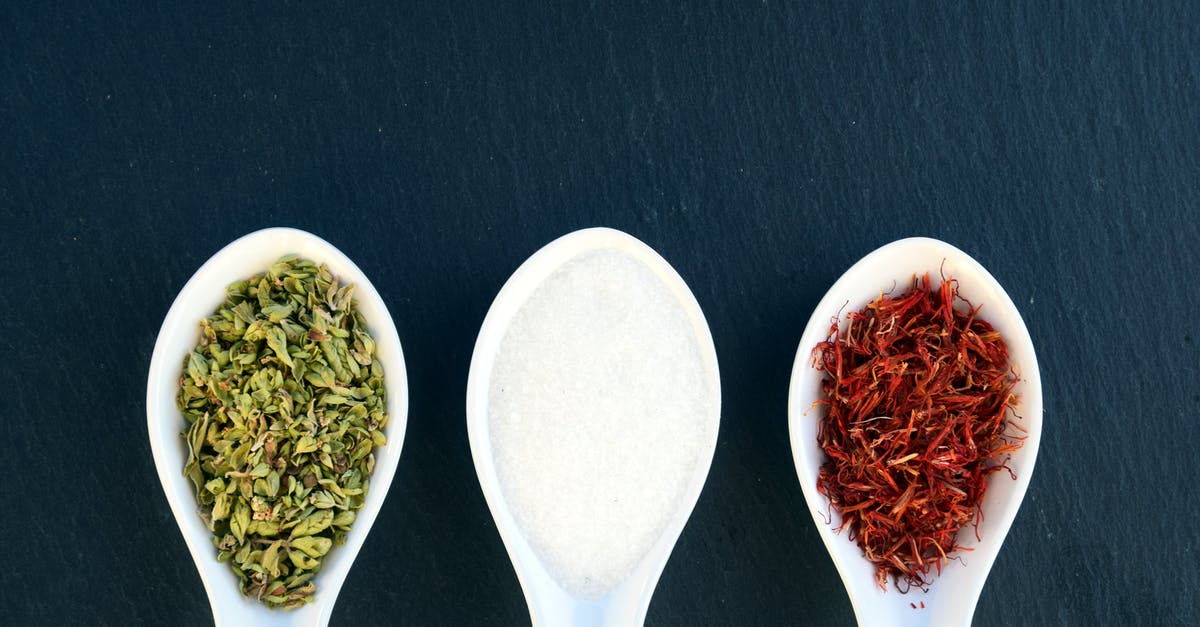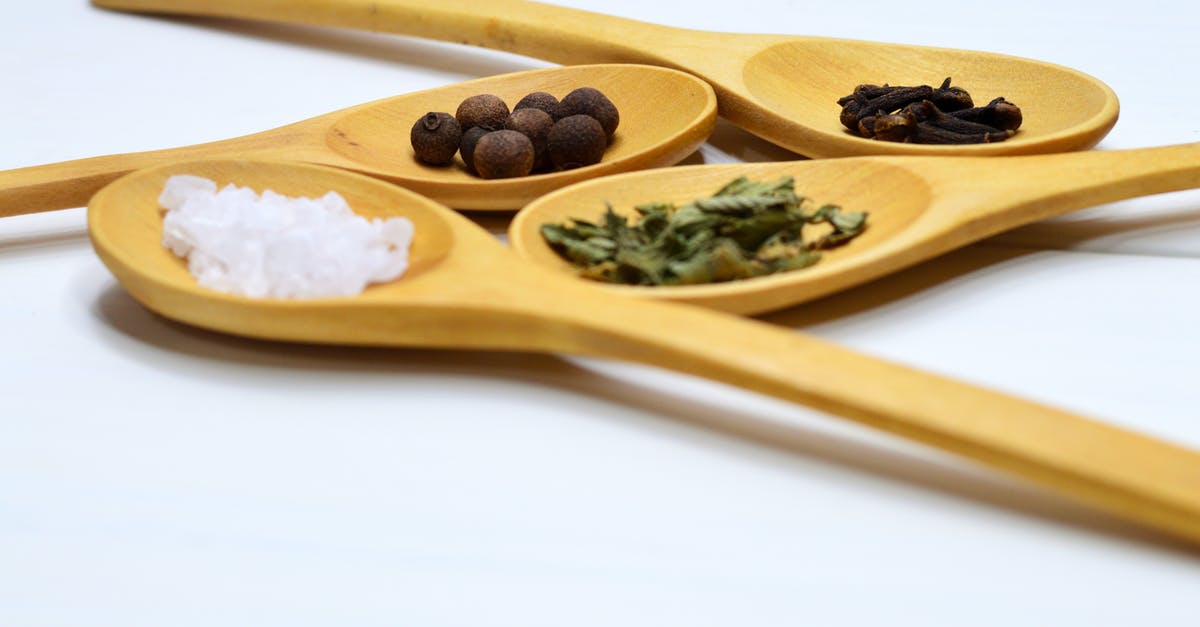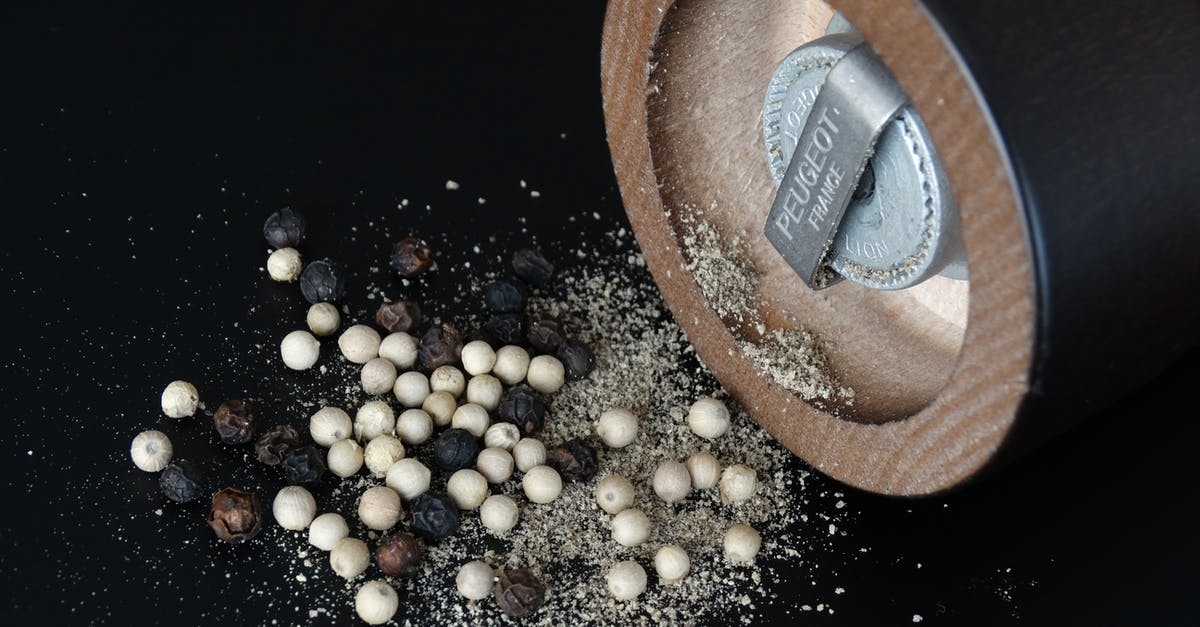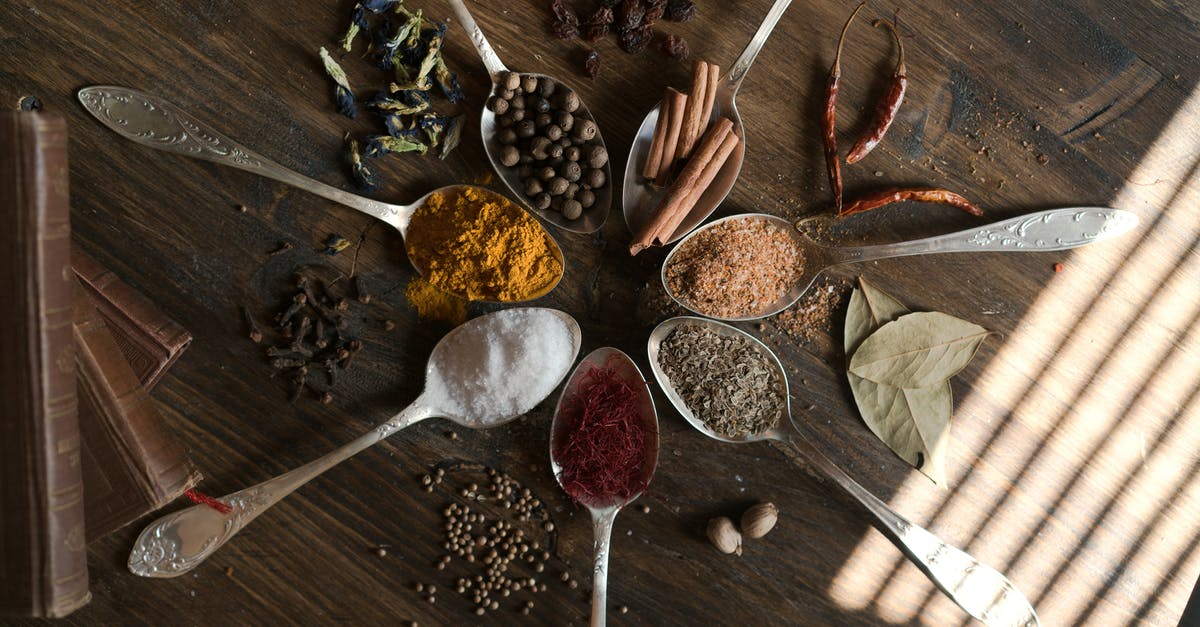Pressure cooking beans with salt and spices

I am trying to pressure cook beans. In order to to soeed things up eben further I add salt before cooking rather than after. While I know that salt toughening beans is an unsubstantiated myth there are still some ingredients that can make beans cook slower like tomatoes, vinegar, etc.
The salt i am using is approximately 70% salt while the rest being curry mix with ingredients like several green herbs, turmeric, ginger, cumin, etc.
I have 2 questions about this: 1) Is there any reason why the non-salt part of my spice mix could slow cooking or reverse the effects of salt? Any special spice to avoid that offset salt? 2) Is it alright to add spices BEFORE a session of pressure cooking? Any reason I should be concerned? Like taste, health or anything else?
Thanks a lot
Best Answer
The main impact I find is on flavor. If you're in a hurry and just want a one-pot recipe, go for it, throw it all in and let it cook. Most Indian spices are fairly robust and should withstand the pressure-cooking process. But you may get better results if you cook some of separately, especially if you're already going to be cooking onions, garlic and ginger to add in. I do often include some salt during cooking because I feel that it helps to flavor the food better, similar to the way I was taught to cook pasta (salt the water the pasta cooks in and give a lighter hand to the salt in the sauce).
You really can still generally get reasonably good results without worrying too much about this stuff. It's just that you may get better results if you pay closer attention to when you add what. :-) But if the main result that you want is no-hassle, quick cooking, then who am I to tell you what you really want from your food?
You will certainly get a slightly different flavor from spices depending on how you handle them. Some herbs become bitter if they're cooked a long time (oregano), others lose their flavor pretty much entirely if you cook them longer (dill, mint). Others develop a more complex flavor profile if they are roasted first (cumin, coriander seed).
If I am cooking with cloves, cinnamon, bay leaves, cardamom -- really aromatic things that I usually remove after cooking -- I usually include these during the pressure-cooking and remove them when I open the cooker. They will have imparted a strong flavor and aroma into the beans and the cooking water and I don't need more from them. My mom always removes bay leaves before she packs away any left-overs because she finds that they continue to impart an ever stronger flavor into the food while in the fridge. I find the same is true of cinnamon sticks. (Cloves and cardamom not quite as much, I just don't like to bite into them as I'm eating the food.)
I usually cook the other spices separately in another pan with whatever onion/ginger/garlic/etc while the beans are cooking, then add those all together to the beans after the beans have finished cooking.
If you're starting from a pre-blended spice mix, I would probably treat that like the latter and cook it with the onions, etc, and add it towards the end. That doesn't mean you can't throw all of it (onions and all!) into the pressure cooker and have it cook together, but an onion that goes into the beans and water raw will impart a different flavor from that of a caramelized onion. The same goes for raw vs cooked tomato and various other ingredients in Indian cooking.
There are some recipes where I like the effect of just throwing everything in together raw (usually soups, stews, chili, baked beans) but for others I find that taking the extra effort of handling some things differently pays off. (I also find that starting from fresh spices IF you use them frequently makes a big difference vs pre-mixed spice blends, but then again, sometimes having the pre-mixed blends to fall back on can be a nice change, too.)
From a health perspective, cooking vegetables and spices in the pressure cooker will raise the cooking temperature vs boiling. Any nutrients that are adversely affected by high heat may be further affected by pressure cooking vs cooking on an open pan on the stove. Most herbs and spices are of fairly negligible nutritional value to begin with (at least, in the quantities we cook with) so I wouldn't worry about this type of nutrient loss from spices.
Water-soluble nutrients from the beans or from greens like spinach and kale are still present in the cooking liqueur, so as long as you don't discard that after cooking, you aren't losing a lot of nutrients there, either.
From a time perspective, I have never noticed any difference in the time it takes to cook lentils if I have the onions, tomatoes and spices in with them, but I also haven't tried to shave the time down to the minimum there, either.
If you're in a really big hurry or if you have some older beans that are being stubborn about rehydrating, you can add a little bit of baking soda to the cooking water to help them to soften up. Use very little (<1/2 tsp in a big pot) or plan to discard the cooking water. If you are using baking soda you can change the water half-way through and add the spices at that point for a compromise.
This is based on how I learned to cook American food from my mom and that side of the family and Indian food from my in-laws and college roommates, etc, as well as a lot of experimentation. :-)
Pictures about "Pressure cooking beans with salt and spices"



Can you pressure cook beans with salt?
Tips for the Best Beans Add a tablespoon of oil: This helps reduce foaming as the beans cook, which can sometimes clog up the pressure valve and interfere with cooking. Add a teaspoon or two of salt: This is your only opportunity to season the beans on the inside, so be sure to add some salt to the pot.Can you use salt in a pressure cooker?
Never fill the pressure cooker more than the half full line. This includes beans, ingredients, and water. Pressure cookers must contain a minimum of \xbd cup of liquid in order to operate correctly. Add 1-4 tablespoons vegetable oil and up to 1 tablespoon of salt to one pound of beans during the soaking or cooking.Can you put spices in a pressure cooker?
Whenever possible use fresh herbs and spices. Whenever not possible, lightly crush and rub dry herbs before tossing them in the pressure cooker. Whack whole spices with something heavy and toast powdered spices to invite their flavor to the pressure cooker party.Can you put salt in a Instapot?
Instant Pot Syracuse Salt Potatoes are a delicious potato side dish or appetizer. You can make this tasty Instant Pot potato recipe in under 30 minutes. Add the salt to the pressure cooker pot. Then add 2 cups of the water and stir to dissolve the salt.4. Bean Essentials - Pressure Cooking School
More answers regarding pressure cooking beans with salt and spices
Answer 2
Pressure cooking of beans, the first thing to take care of: are you talking about the dry beans or do you keep the beans to soften in water before cooking. When I cook beans I keep them in water overnight. Again, if you cook the dry beans, then it will take about 7-8 whistle in pressure cooker whereas 4 whistles if it is softened. You are correct, the salt increases the speed of cooking and tomato does not. What I do is I always put salt and other spices along with beans while cooking and other green veggies like tomato, capsicum, coriander after the bean is cooked. This not only speeds up the cooking process but also preserves the freshness and enhances the flavour.
More than having the scientific reason, it is our tradition. Because experience teaches a lot.
Answer 3
Salt can have different effect on beans depending on WHEN you add it during the cooking process.
If you add it during the soaking period, this is called brining beans and this can significantly cut-down the cooking time (and pressure cooking time) of beans.
If you add salt during the cooking period, it actually strengthens the skins a bit making it difficult for the water to penetrate inside the bean. In fact, adding salt during pressure cooking is mostly used to keep quick-soaked beans together.
The ideal way would be for you to use a curry mix without salt. Barring that, use it with pre-soaked beans (8 hours or overnight) or split lentils (30 minutes) with your existing mix.
In the future, now that you know about salt's effect on the beans, and don't use it during cooking for recipes that should have a final soup-like or creamy consistency.
Sources: Stack Exchange - This article follows the attribution requirements of Stack Exchange and is licensed under CC BY-SA 3.0.
Images: Pixabay, Miguel Á. Padriñán, Pixabay, ArtHouse Studio
